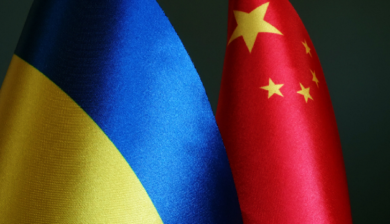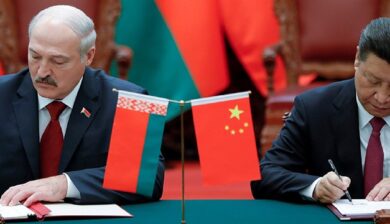Disinformation Resilience Index in Central and Eastern Europe in 2024
The Disinformation Resilience Index (DRI) study covers four Visegrad countries (Czech Republic, Hungary, Poland, Slovakia) and six Eastern Partnership states (Armenia, Azerbaijan, Belarus, Georgia, Moldova, Ukraine).
Read MoreCharting a Way Out of the Disinformation Stalemate: Targeted Recommendations for Czechia, Slovakia, and Poland
This report offers a mapping of the current vulnerabilities in these Central European nations and provides recommendations for key stakeholders
Read MoreChina’s Narratives on Russia’s war on Ukraine in Central Europe
The report reviews Chinese narratives on the topic of Russia’s invasion of Ukraine in Poland, the Czech Republic, and Slovakia.
Read MoreBehind the Ballot: Unmasking Influence Narratives in Czechia, Slovakia, and Poland’s EP Races
This report discusses disinformation environments in the Central European countries ahead of the June 2024 European Parliament elections.
Read MoreMajor Pro-Kremlin Disinformation Narratives and Their Transmitters in Poland, Czechia, and Slovakia
The research brief looks into pro-Kremlin disinformation narratives in Poland, Czechia, and Slovakia and actors that propagate them.
Read MoreInfodemic and Societal Resilience in the Czech Republic, Slovakia, and Poland
The brief discusses the persisting challenge of the infodemic and explores strategies to counter it while enhancing the resilience of societies in the Czech Republic, Slovakia, and Poland.
Read MoreRelations between Belarus and China in 2020-2022: What lies behind the “all-weather partnership”
The report analyzes political and economic relations between Belarus and China in 2020-2022 and the main trends in official Belarusian rhetoric on the topic of bilateral relations.
Read MoreBelarus’s response to Covid-19 in the education sector
This brief provides an overview of the measures taken by the Belarusian state authorities in the education sector in response to the pandemic. It concludes that despite repeated declarations concerning the usefulness of remote learning over the past decade, little has been done in pra
Read MoreDisinformation Resilience Index in Central and Eastern Europe in 2021
The 2021 Disinformation Resilience Index study covers four Visegrad countries (Czechia, Hungary, Poland, Slovakia) and six Eastern Partnership states (Armenia, Azerbaijan, Belarus, Georgia, Moldova, Ukraine).
Read MoreThe varied approaches of authoritarian post-Soviet countries to the coronavirus pandemic
Turkmenistan, Tajikistan, and Belarus, three personalist dictatorships, took striking and unique paths in fighting the Covid-19 pandemic which largely reflected the leaders’ personalities and types of political regimes.
Read MoreDigest of studies on Covid-19 and the implications for post-Soviet countries
The digest summarises twenty six briefs, analytical reports, academic articles, and other types of studies concerning COVID-19 implications for post-Soviet countries, which were released between March 2020 and May 2021.
Read More“Vaccine diplomacy” targeted at Eastern Partnership countries
This brief reviews the Eastern Partnership countries’ responses to “vaccine diplomacy” that major states targeted at them.
Read More© Copyright 2016, EAST Center











